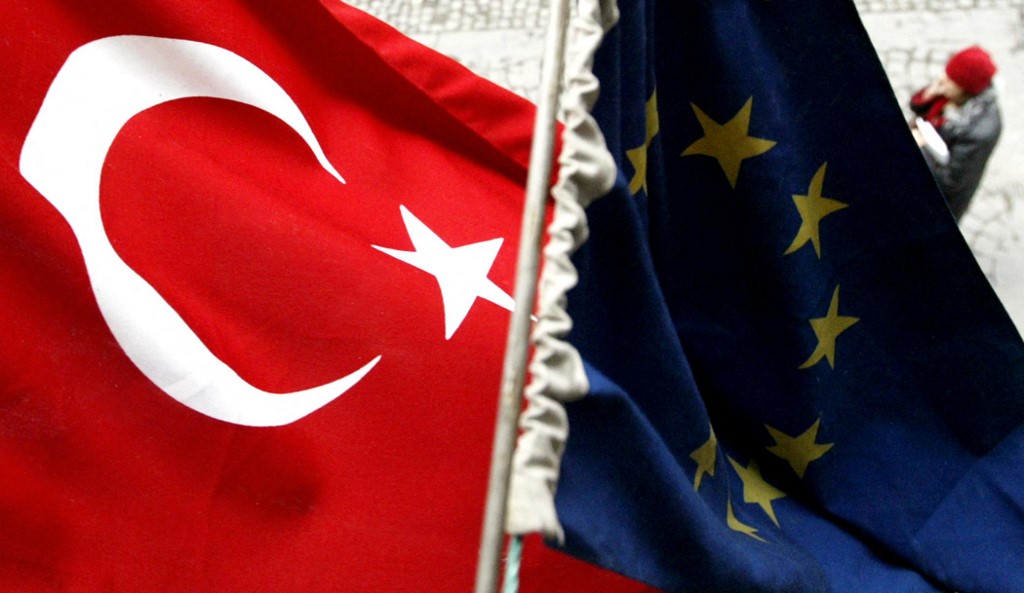A polling of six EU member states for the European Council on Foreign Relations (ECFR) found strong opposition to the possibility of Turkey joining the EU, with 51 percent of those surveyed across the six countries opposing the idea, The Guardian newspaper reported.
Fewer than one in five respondents supported any forward movement on Turkish membership, according to the survey, which was conducted in Denmark, Poland, Germany, Romania, France and Austria November 7-19 with the participation of 6,153 respondents.
The survey was conducted ahead of a meeting of the EU’s 27 heads of government in Brussels this week where they are due to discuss the prospects of Ukraine’s joining the EU.
Turkey’s bid to join the EU has been frozen for years after having launched membership talks in 2005, and there is no light on the horizon for the reopening of the membership negotiations.
The European Commission in its yearly report on Turkey released last month said there are “serious deficiencies” in the functioning of Turkey’s democratic institutions, underlining continuing democratic backsliding and structural deficiencies in the presidential system during the reporting period.
The European Commission, however, recommended last month that formal accession talks begin with Ukraine and Moldova.
Enlargement has become an urgent EU priority since Russia launched its war on Ukraine in February 2022. The EU Commission in November also backed entry talks with Bosnia and Herzegovina – once Sarajevo is ready – and recommended Georgia be given candidate country status.
The survey found considerable support for the candidacies of Ukraine and, to a lesser extent, Moldova and Montenegro, but also deep economic and security concerns.
However, there was widespread opposition to the eventual accession of Turkey in particular, as well as a markedly cool response to the prospect of Albania, Bosnia, Georgia, Kosovo, North Macedonia and Serbia joining the union.
The survey found support for Ukraine’s entry highest in Denmark (50 percent) and Poland (47 percent), with opinion roughly divided in Romania (32 percent for, 29 percent against), Germany (37 percent for, 39 percent against), and France (29 percent for, 35 percent against). Austria was 52 percent opposed.
